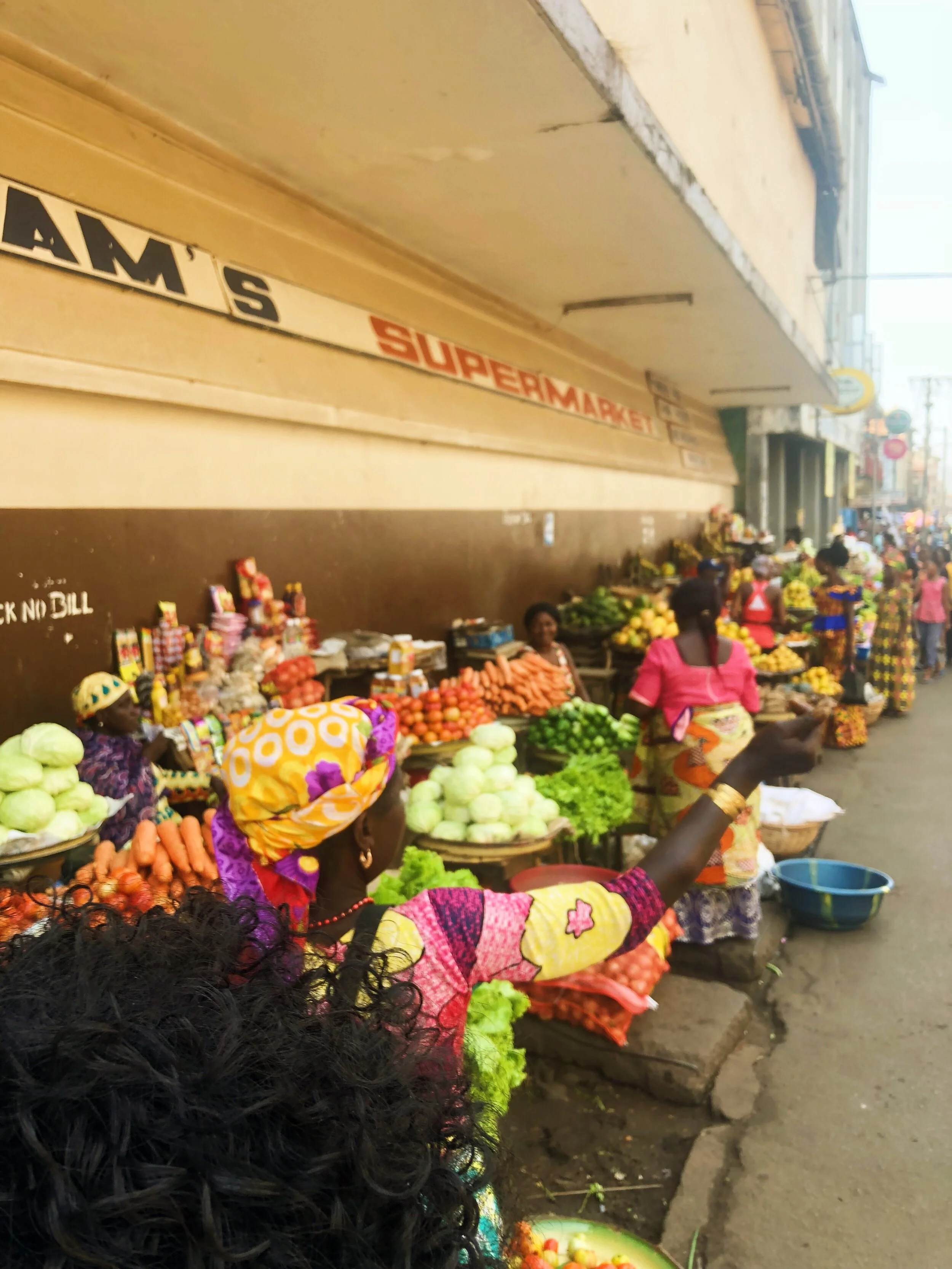By Bennetta Clarke
“Top up! Top up! Top up!” I heard the petty traders call for us to top up the credit on our cell phones. This call could be heard on every corner of Freetown as the traders sought to sell phone credits in order to meet their daily income. Just one day into my visit, I found myself intrigued by the job market in Sierra Leone. In navigating the boundless markets, there seemed to be an opportunity to make money selling anything. This thought was quickly reformed when I began to investigate alternative occupations. In discussions with cousins and family friends, it was revealed to me that there was little variety in the nation’s job market. Despite the image of a bustling environment in which anything could be sold on the street, the reality is that there is a lack of opportunity for both professional and vocational work in Sierra Leone. After this revelation, I couldn't help but consider how the inflexible job markets might curtail the sustainability of aid programs.
During my stay in Freetown, I was able to speak with my cousins and family friends about life in Sierra Leone. One of the recurring topics discussed were job opportunities. The youth who received education on different trades and professions are deadlocked in unemployment due to the lack of job opportunities for the general public. The youth that did not have the same educational background still experienced the same fate as the others. Most of the population has been pushed to entrepreneurship like the cell phone credit petty traders. Though there is a great chance of economic growth in entrepreneurship, the youth of Freetown demand for diversification.
In the many attempts to provide aid to African countries, organizations have left out sustainable components. When assistance is given directly to governmental entities there has been proof of misappropriation of funds. When aid is given through volunteerism, volunteers eventually leave with their materials, funds, and expertise, thus leaving communities with little to no sustainable change. Project aid, where organizations go to complete a singular project, can have similar results if a tool of sustainability is not employed. One tool of sustainability that can be useful for the lack of job diversity in Sierra Leone is empowerment.
Empowerment used in aid has gained traction in many projects around the African continent. For example, one project in Uganda aimed at installing Microflush (MF) toilets, used a “Visionary Approach” to empower women to gain new skills that could be used sustainably in their respective communities. The Visionary Approach is an educational model by which community members are equipped with knowledge and skills to achieve visionary leadership for community transformation. The Visionary Approach is employed in areas such as agriculture, entrepreneurship, and education. Particularly, the MF toilet project held workshops to train women in leadership and entrepreneurial proficiencies, so they could further advance the technology of MF toilets in their own communities. These skills included the construction, maintenance, and distribution of MF toilets. As a result of this project, these communities established a new market and experienced economic growth. Empowerment is an important quality to introduce when discussing aid because the goal should be to achieve long-term change. Teaching trades and providing an opportunity to use those trades can directly apply in developing countries.
Empowerment as a tool of sustainability can be particularly helpful when considering job markets in Sierra Leone. There is an intersection between public health and general human development that can be affected by equipping populations with opportunities to practice a diversity of skills and professions for a living. Project Genes1s has made empowerment a foundation for its mission, so with great hope, the organization will encourage and enact sustainable changes similar to those actualized in Uganda. The strength and resilience of Sierra Leoneans allow us to have great potential, but it is essential that all humanitarians of African descent consider the long-term change.

